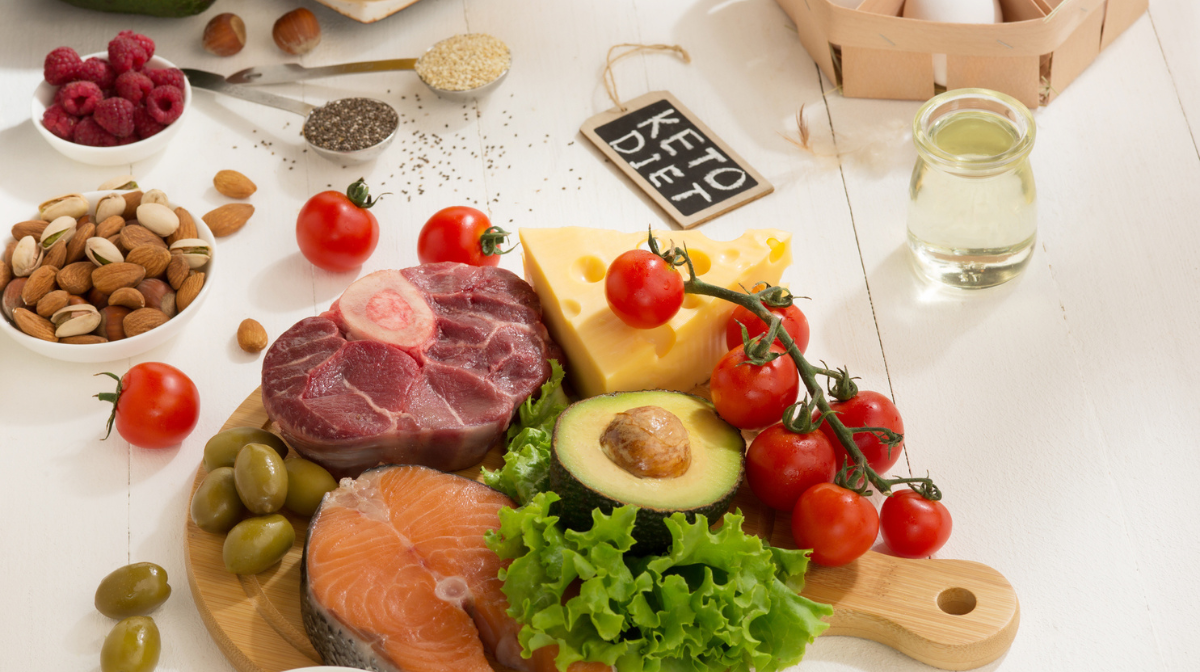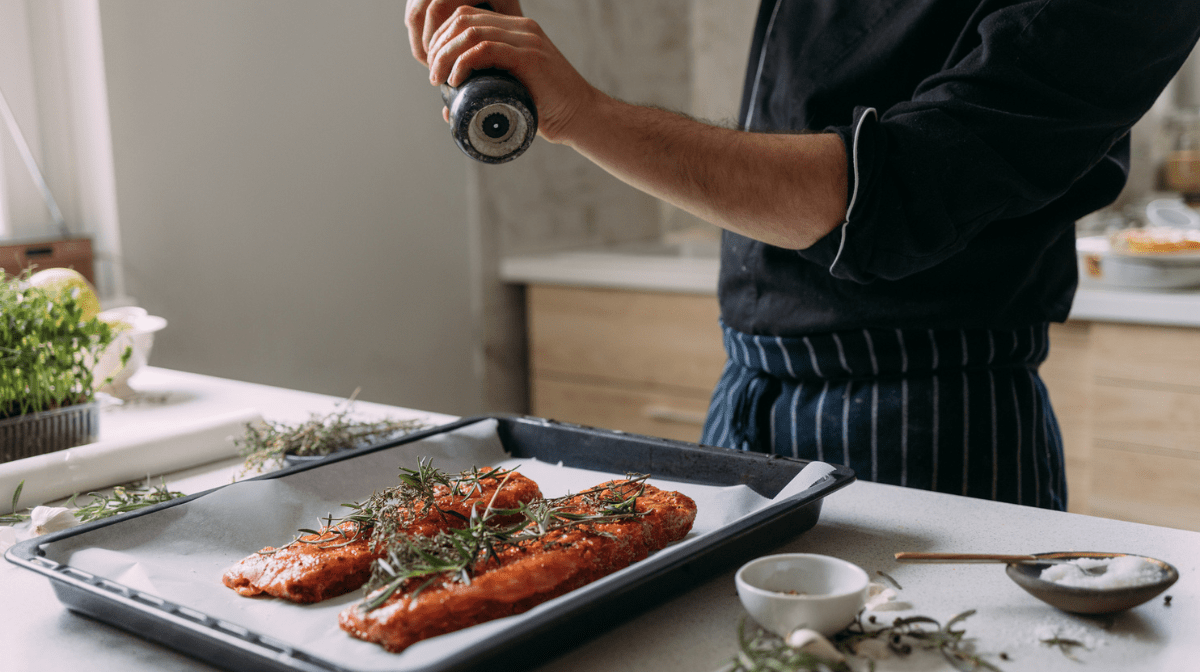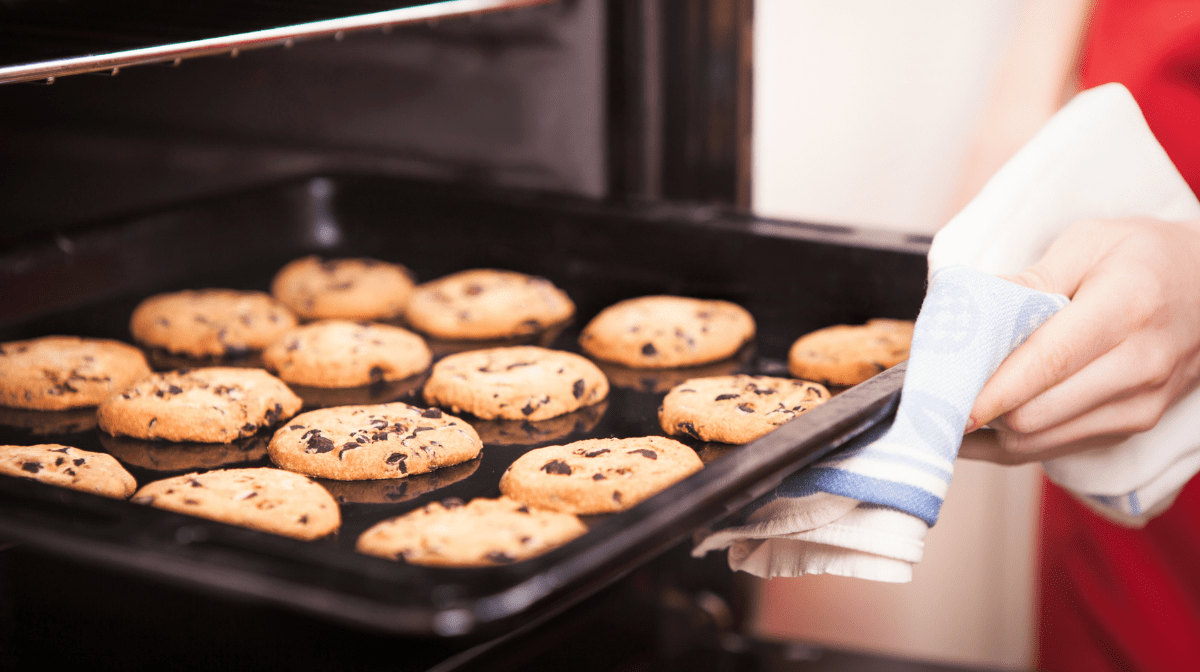The ketogenic diet, commonly known as the keto diet, has gained popularity in recent years. This low-carbohydrate, high-fat plan could help you to lose a few pounds or control certain health problems.
But what can you eat on a keto diet? We’ve got you covered. We will delve into the delightful realm of keto-friendly foods, providing you with a mouthwatering selection of options to enjoy.
What Can You Eat on a Keto Diet?
It’s advised that people who follow a keto diet are asked to divide their daily calorie intake of fat, protein, and carbohydrates. The dietary consumption of these macronutrients is divided into 55%-60% fat, 30%-35% protein, and 5%-10% carbohydrates. For example, a person consuming 2,000 calories per day, needs 122-133g of fats, 150-175g protein, and 20-50g carbohydrates.
We’ve put together a list of keto-friendly foods to get you started, including healthy fats, lean protein, and low-carb vegetables. Check out the list below:
Keto Healthy Fats
At the heart of the ketogenic diet is a focus on healthy fats, also known as unsaturated fats. These include:
- Avocado: packed with monounsaturated fats, avocados are versatile and delicious. Enjoy them in salads, as guacamole, or as a creamy addition to various dishes.
- Olive oil: drizzle extra virgin olive oil over your salads or use it for roasting. It has a rich flavour and adds a touch of luxury to any meal.
- Coconut oil: coconut oil is highly versatile and can be used for cooking, baking, and even blending into your bulletproof coffee. It is also rich in medium-chain triglycerides (MCTs). MCTs are more satiating than long-chain triglycerides (LCTs), which may help people consume fewer calories throughout the day.
- Nuts and seeds: almonds, walnuts, chia seeds, and flaxseeds are fantastic sources of healthy fats and make for excellent snacks or toppings for salads and desserts.
- Dairy products: Cheese, Greek yoghurt, and cottage cheese are high in protein and low in carbohydrates. They make delicious snacks or add to a variety of keto-friendly dishes.
Quality Protein on Keto
The keto diet encourages the consumption of healthy fats, but it’s also important to include high-quality protein sources in your meals. It could help to maintain muscle during weight loss, and it’s satiating so can help to keep you full.
One study suggests that for a 2,000-calorie diet, you should take 75g of protein to help you stay in ketosis and preserve lean muscle mass when you follow a low-carb diet. You can make sure you’re getting all the nourishment you need by including protein-rich foods in your diet, like beef, chicken, eggs, fish, and shrimp.

Low-Carb Vegetables
On the standard keto diet, it is often recommended that no more than 5-10% of total calories come from carbohydrates, which is typically less than 50g net carbs per day. Net carbs refers to the carbohydrate content that can be absorbed by the body, which can be calculated by subtracting the fibre content from the total carbohydrate content of a particular food. Whilst following the keto diet requires limiting carbohydrate intake, it does not mean you have to sacrifice the inclusion of nutrient-packed vegetables.
We’ve selected an extensive range of low-carb options to enhance your meals with a plethora of vitamins, minerals, and fibre:
- Leafy greens: incorporate leafy greens such as spinach, kale, and lettuce into your meals. They are not only low in carbs but also high in fibre and they are an excellent choice for salads or side dishes. Their crisp textures add freshness to your plate while providing essential nutrients like vitamin C, vitamin K, and folate.
- Cruciferous vegetables: cruciferous vegetables such as broccoli, cauliflower and watercress are rich in vitamins, minerals, and antioxidants. Roast them to bring out their natural sweetness or steam them for a tender texture.
By including leafy greens and cruciferous veggies into your keto diet, you can get the vitamins and minerals you need while adhering to your low-carb goals.
What Not to Eat on a Keto Diet
It’s important to be aware of foods that can hinder your progress by contributing to excessive carbohydrate intake when following a keto diet, as this could kick you out of ketosis. Here are some foods you should avoid or limit:
- Grains
- Starchy vegetables, such as potatoes, sweet potatoes, corn, and carrots.
- Legumes
- Sugary foods
- High-sugar fruits, like bananas, grapes, pineapples
By avoiding high-carb foods, sugary condiments and unhealthy fats, you can improve your chances of success on the diet.
Keto Diet for Beginners
If you’re new to the world of the keto diet, keto supplements are easy and convenient options for you. We stock an extensive range of keto-friendly supplements that feature tailored formulas and provide the essential nutrients you need.


